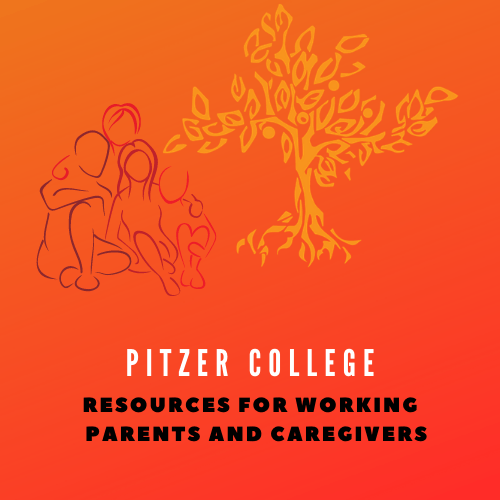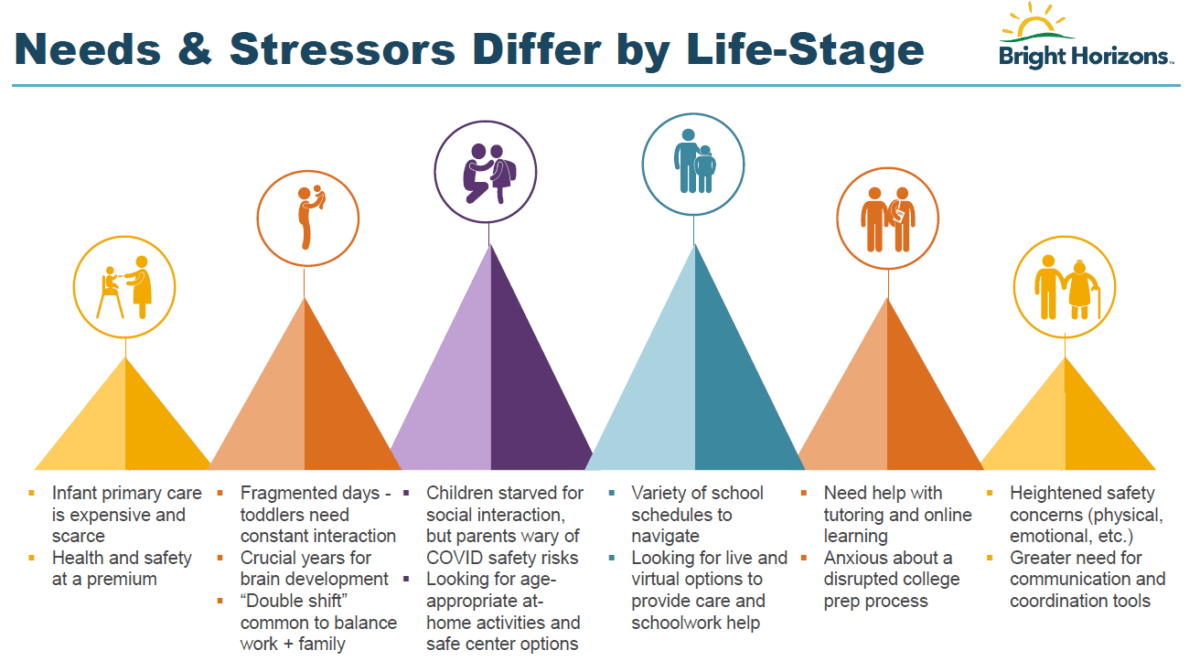
The COVID-19 pandemic has introduced new and difficult challenges for our staff and faculty who care for children, elderly family members, and other dependents. The Dependent Care Subcommittee is comprised of staff and faculty who are working with the COVID-19 Taskforce and the Cabinet to find ways to provide some relief to our hardworking parents and caregivers. Although there is no perfect solution, we hope to provide some resources to alleviate stress and assist with this issue.

-
Flexible Work Schedule
In August 2020, the Emergency Telecommuting Policy was established to provide guidelines for faculty and staff working remotely. This policy states, “If an employee needs to modify their normal schedule, the employee shall work with their supervisor to discuss any change in working hours. A flexible work schedule allows our staff and faculty to work a modified work schedule, which accommodates special circumstances to better manage their personal and work life while ensuring that the needs of the College are satisfied.”
If you are being overwhelmed by care-giving duties during the hours you’re expected to work, please reach out to your supervisor to see if a more accommodating and flexible schedule can be arranged. If you are not comfortable having this discussion with your supervisor, please contact Human Resources or a member of the Subcommittee (listed on the bottom of this page) to be your liaison in this process.
-
Back-Up Care
Back-Up Care (through Bright Horizons) has been a benefit for Pitzer staff and faculty, but it has been adjusted to meet the needs of parents and caregivers during the pandemic.
Click to see an overall informational sheet on FAQs for Back-Up Care Program benefits.
-
Additional Family Supports
Bright Horizons realizes that Back-up Care is not an option for many families at this time. They have created a streamlined system of Additional Family Supports to help families find centers, care providers, tutors, educational specialists, housekeepers, and pet sitters at discounted rates. This new Bright Horizons database assesses employee needs and facilitates the search for short-term or long-term care, as well as educational support for families or learning pods.
-
Child Care for Essential and Low-Income Workers
- LA CARES for Essential Workers: Click here to view more information and to apply for child care services (vouches) for essential and low-income workers. LA CARES para trabajadores esenciales: Haga clic aquí para ver más información y solicitar servicios de cuidado infantil (vales) para trabajadores esenciales y de bajos ingresos.
-
Dependent Care Community Listserv
There is a new listserv ([email protected]) that our parents and caregivers can voluntarily sign-up for to share information across the 7Cs. Are you looking for a playdate or wish to form a pod with similarly-aged children in your area? A highschool or college student who has babysitting experience? Recommendations for a pandemic-safe daycare or elder care facility?
List is open to 7C’s email addresses only.
How to access the service:
To Subscribe
- From your email account, send an email to: [email protected]
- Leave the subject line blank.
- In the body of the email type: Subscribe familycare
- This should be the only item in the email body. Make sure there is no signature or other text.
To Unsubscribe
- From your email account, send an email to: [email protected]
- Leave the subject line blank
- In the body of the email type: Signoff familycare
- This should be the only item in the email body. Make sure there is no signature or other text.
-
Resources for Children
- Tutors for a Cause (A Pitzer Student Organization): Sign up for homework help, fun activities, and one-on-one tutoring – open to all students who are enrolled in school (K-12) and whose family has a relationship with Pitzer College. Feel free to contact this organization to learn more at [email protected])
- TedEd: Ted Talks for younger viewers on all kinds of subjects.
- Free Books and Storytelling
- Free Online Art Activities / Instruction
- Animal/Nature Cams and Info Sessions
-
Elder Care Resources
- California Department of Aging: Programs and services that serve older adults, adults with disabilities, family caregivers, and residents in long-term care facilities. Apply for Medi-Cal, help dealing with memory problems, getting transportation to appointments, etc.
- Institute on Aging: Providing seniors and adults living with disabilities with much needed support. Their services have recently been adjusted to meet the new challenges that come along with COVID-19.
- National Institute on Aging: Articles, infographics, and other resources on topics like staying connected, money management, and health care.
- Age In Place: Many older adults want to “age in place” — stay in their own homes as they get older — but may have concerns about safety, getting around, or other daily activities. Read about how to plan ahead for living at home.
-
Meet the Subcommittee
- Brittany Gray, Staff
- Fely Catan, Faculty
- Harmony O’Rourke, Faculty
- Jessica Levy, Staff
- Menna Bizuneh, Faculty
- Michael Ballagh [Convener], Staff
- Ruti Talmor, Faculty